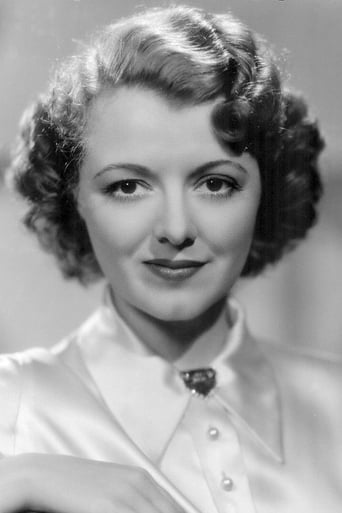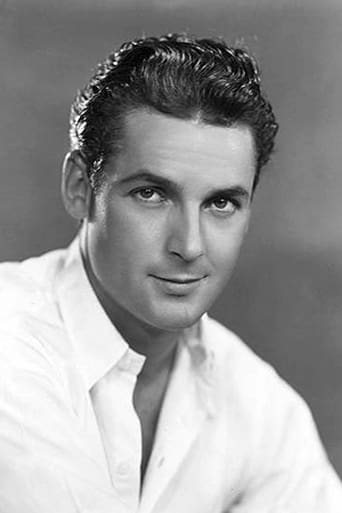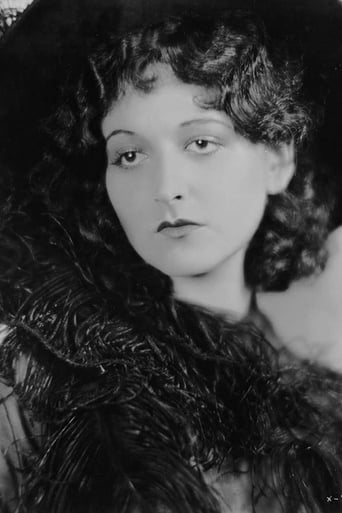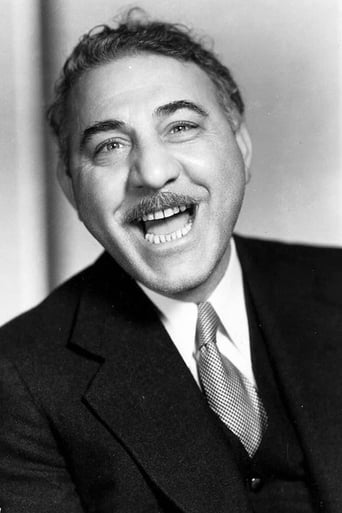lshelhamer
Another pairing of Janet Gaynor and Charles Farrell that could have been right out of Puccini. Farrell is not as his best as an improbably naive itinerant painter. Gaynor comes off somewhat better as a circus performer with an illicit past, who initially rejects all men and love, but then predictably falls in love with the painter's idealism and optimism. The sets are wonderful, also operatic in atmosphere, especially in the street scenes. There is an excruciatingly long goodbye scene where, unbeknownst to Farrell, Gaynor must leave him to pay her debt to society. Yet the movie could have been saved if it ended with the melodramatic scene with Farrell, finally learning the truth, choking Gaynor in a side altar of a church, under the picture of her he had painted previously. The Madonna symbolism is pretty obvious. Unfortunately, in literally the last five minutes, a happy ending destroys the entire spirit of the movie.
Claudio Carvalho
In Naples, the young Angela (Janet Gaynor) needs 20 Lira to buy medicine for her terminal mother. She sees the prostitutes on the street and she decides to sell her body to earn the money. She does not succeed and tries to steal money from a customer of a street vendor. Angela is arrested and sentenced to one year in prison but she escapes and finds her mother dead. While chased by the policemen, she is hidden by Mascetto (Henry Armetta), who owns a traveling circus, and she works with his team. Angela meets the painter Gino (Charles Farrell) and they fall in love with each other. When Angela breaks her ankle in a fall, she returns to Naples with Gino that grows as painter and is hired to paint a mural in the church. Gino proposes to marry Angela but a policeman recognizes Angela and gives one hour to her to say goodbye to Gino. Angela does not tell him about her past and vanishes from his life. One year later, Angela is released and she immediately goes to see the mural painted by her beloved Gino. However she sees the name of Roberti instead and she learns that Gino had been fired. Now the starving Angela wanders on the harbor. Meanwhile a prostitute tells to Gino that his love is a "street angel" and he decides to paint again, not the face, but the soul of prostitutes and seeks a model on the harbor. When they stumble on each other, Gino sees her soul through her eyes and they stay together. "Street Angel" is silent movie with a wonderful melodramatic romance and magnificent performance of Janet Gaynor, the first winner of an Oscar in the Best Actress in a Leading Role category for her work in "7th Heaven", "Sunrise: A Song of Two Humans" and "Street Angel". The camera work is amazing for a 1928 movie and the introduction is impressive with a long 360 degrees shot. The cinematography is also stunning and this movie deserved to be restored. My vote is nine.Title (Brazil): "Anjo da Rua" ("Street Angel")
lugonian
STREET ANGEL (Fox, 1928), directed by Frank Borzage, from the play "Cristilinda" by Monckton Hoffe, reunites Janet Gaynor and Charles Farrell, the popular young pair from the highly successful SEVENTH HEAVEN (1927), in another dramatic love story. For her performance in STREET ANGEL, Gaynor, along with both SUNRISE (1927) and SEVENTH HEAVEN, earned her the Academy Award as Best Actress during its initial ceremony. This was the only time an actress was honored for three motion pictures. While SUNRISE and SEVENTH HEAVEN remains relatively known and important in cinema history, STREET ANGEL continues to be the least known and discussed of Gaynor's award winners. Following the pattern from SEVENTH HEAVEN with the Borzage style of sentimental delight, its use of dark images and interesting camera angles obviously borrows from the F.W. Murnau style of SUNRISE. It also provides its two leads, Gaynor especially, a wider range of showcasing their ability as a fine romantic couple, with Gaynor's fragile appearance of charm and sincerity.Opening title: "Everywhere-in every town, in every street, we pass, unknowingly, human souls made great by love and adversity." The setting is Italy in the city of Naples, "under the smoking menace of Vesunius ... laughter-loving, careless sordid Naples." After the introduction of a circus troupe coming to town, the camera pans over towards the apartment where a doctor, having examining a very sick woman, informs her daughter, Angela (Janet Gaynor), to have his prescription filled immediately. Unable to obtain the 20 lire for the medicine, Angela, in desperation, goes out into the public streets where she imitates a common streetwalker to sell herself for money. The scheme fails when she's caught picking a man's pocket by a observant policeman (Alberto Rabagliati) who arrests her on robbery charges while soliciting in the streets. Sentenced to a year at the workhouse by the judge, Angela escapes to return home and find her mother has died. When she sees the policeman approaching her apartment door to take her in, she eludes him once again by hiding inside a broken musical drum belonging to Mashetto (Henry Armetta), leader of a visiting circus. Feeling pity for the young girl, the kind-hearted Mashetto takes Angela on as one of the circus acts. Outside of Naples, Angela encounters Gino (Charles Farrell), a young artist known as "The Vagabond Painter". Unaware of her past, and envisioning her as an angel pure in heart, he has her pose for him. After capturing her portrait on canvas, the couple fall in love with plans to marry. Following her accident leading to a sprained ankle, Gino takes Angela back to Naples for proper medical treatment. While there, they take up residence in an apartment where they live in separate sleeping quarters. After selling the painting, Gino is offered a job to paint the great Miro for the Teatro San Carlo church, which is just cause for celebration and he placing an engagement ring on Angela's finger. On the eve of their marriage, the policeman unexpectedly comes to arrest her. Through her pleas, he agrees to give her one final hour with Gino before going with him. The next morning, Gino discovers Angela has disappeared without a trace. Her loss brings forth depression, his loss of artistic creativity, and a destitute life regardless of his renowned portrait of Angela displayed inside a stately church.Released with synchronized musical score, occasional sound effects, whistling and off screen singing of "O Sole Mio," STREET ANGEL is typical good girl gone wrong story. While actually an ordinary motion picture, Gaynor's tender celebration dinner sequence with the man she loves, knowing full well she'll be arrested once her hour is over, along with her having Gino believing her tears of sadness as tears of joy, is well handled. Gaynor's Best Actress win for this production was obviously on the basis of this scene alone. Farrell, who rarely gets any honorable mention for his work, should be given homage for his performance such as this one. Although not very convincing as an curly haired Italian, he gets by dramatically during its second half where his character literally goes on a brink of insanity after learning from Lisetta (Natalie Kingston), a former neighbor just released from prison for prostitution, that Angela had also served time on those very same charges. The scene where Gino attempts to strangle Angela for deceiving him after their paths meet again through the use of dark photography or "film noir" style is quite effective.While STREET ANGEL is a rarely seen item, getting a home video distribution in 1998 with limited release through Critic's Choice Video Masterpiece Collection from the Killiam Library, it did have a cable television showing years later on Turner Classic Movies (TCM premiere: February 17, 2011) with original musical score. Although some may rank STREET ANGEL better than SEVENTH HEAVEN, or visa versa, each is worthy of rediscovery, especially silent film enthusiasts or anyone who's pure in heart for sentimental love stories featuring the frequently teamed pair of Janet Gaynor and Charles Farrell. (***)
drednm
Janet Gaynor stars as the "street angel," a euphemism for prostitute, in this lushly romantic silent film. Of course Gaynor is really not a woman of the streets, but is convicted up this crime and stealing money from a lunch counter, which she does out of desperation to save her sick mother. She escapes the police however and hides out with a traveling circus. She becomes part of the troupe and meets a vagabond artist (Charles Farrell) and falls in love.His love for her inspires him to create a great painting of her. This art gets him a muralist job with the city. On the verge of marriage, the police find her and take her to prison. Farrell doesn't know what's happened to her and his life is destroyed until a chance meeting on the foggy shores of Naples.Janet Gaynor is superb as the street angel, quite able to show passion despite her youth and she looks great. Charles Farrell is OK as the artist. Henry Armetta is one of the circus performers, and Natalie Kingston is the mean prostitute.Director Frank Borzage creates a great city set amidst fog and shadows. This setting is used to great effect in the several chase scenes. The set design and cinematography earned Oscar nominations, and this is one of three films (with Sunrise and Seventh Heaven) for which Gaynor won the very first Oscar as best lead actress (beating out Gloria Swanson and Louise Dresser).Gaynor achieved stardom at the end of the silent era but easily made the transition to sound and had a solid career through the late 30s. She is best remembered as the star of the original A Star Is Born in 1937.




